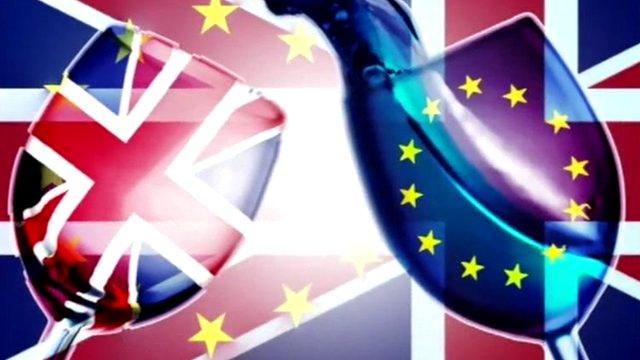What would a British exit from the EU mean for Ireland?
- Published
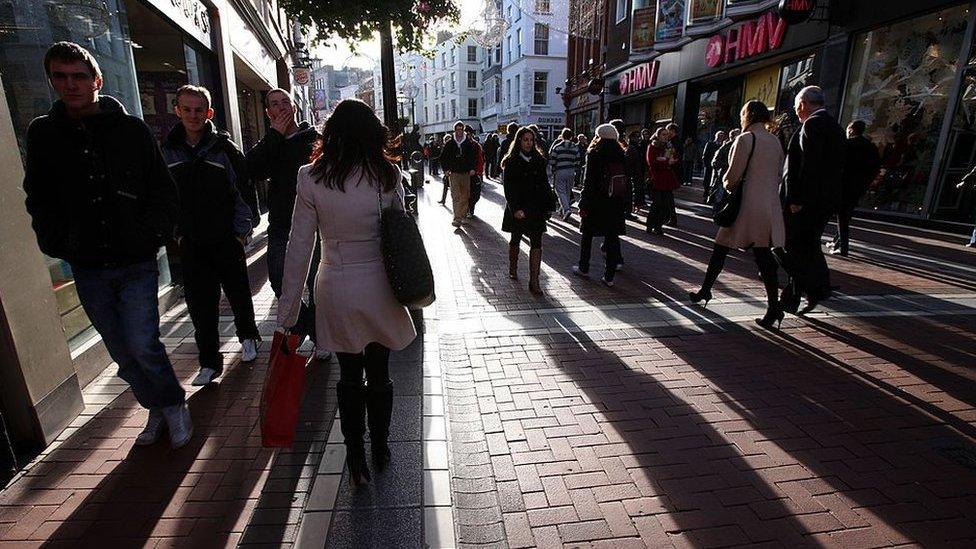
There are mixed views on what the UK leaving the EU might mean for Irish businesses
Britain and the Republic of Ireland were once historical adversaries but now are close trading neighbours.
The Irish government wants Britain to remain in the EU fearing that uncertainty over what might happen to relations with one of its biggest trading partners could have a big impact on the Irish economy just recovering from a deep recession.
Ronnie Ritchie runs one of Ireland's oldest sweet-makers, HG Ritchie in Dublin. The traditional manufacturing methods could remind you of Willie Wonka's chocolate factory, with vast piles of the sweets of an Irish childhood everywhere.
But the stuff that makes them sweet - sugar - comes from Britain.
"Our biggest worry about the British leaving the EU would be our supply of sugar," he says.
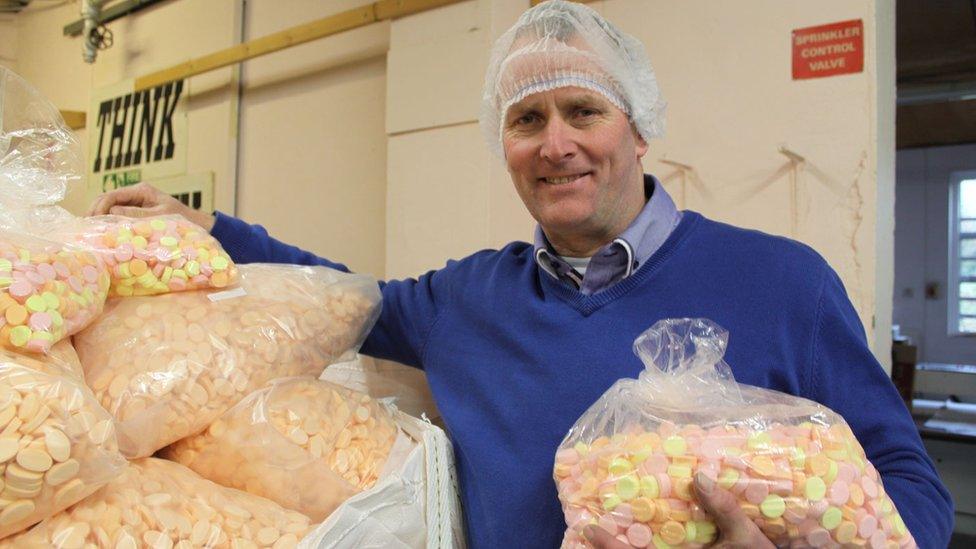
Sweetmaker HG Ritchie does significant trade across the Irish Sea
His business mirrors Ireland generally, with significant trade across the Irish Sea, in both directions.
A mini-mountain of bagged coloured sweets is destined for Scotland where the retro sweets unknown to Ritchie's connoisseurs in Ireland have a loyal following.
"They're a product called Oddfellows, they were made in King's of Wishaw. When that factory closed down we took over the manufacturing here.
"We've exported to a factory called James Ross's of Edinburgh since then and continue to do so. It's a big, big line in Scotland and important to our trade."
"It's a case of suck it and see," he jokes of the UK leaving the EU, but says it's a worry.
"Our main concern here is the possibility of inconsistencies of supply should the barriers go up. No-one likes not knowing what's coming next."
"Are we going to have to go through customs to bring products through again - or are we going to have to dodge England and go around to Europe?
"That's only going to increase our costs, and for an island manufacturer that's really impossible in the current climate."
Closer ties
Ireland will shortly remember 50 years since Irish militants blew up Nelson's Pillar in Dublin, which was similar to the column in Trafalgar Square.
But relations today could not be more different, and are closer than ever since political peace was forged in Northern Ireland in 1998.
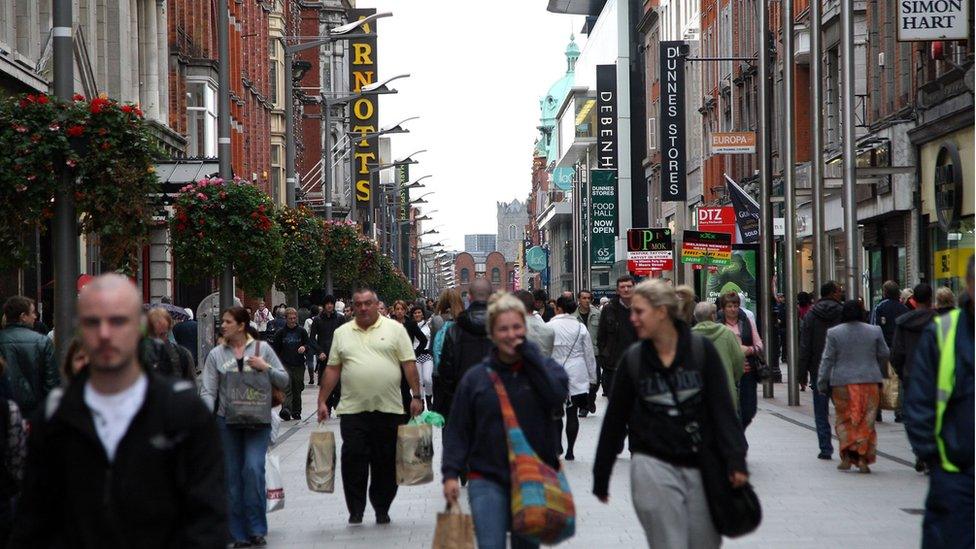
Shoppers in central Dublin: trade between Ireland and Britain has soared since 1998
Near where Nelson once stood, a branch of Ann Summers, the UK-based lingerie and sex toys chain, now fights for business opposite where the Irish rebels fought in the GPO in 1916 on O'Connell Street.
Trade between Ireland and Britain has soared since 1998: one-third of Irish imports come from the UK, which is where one-sixth of Irish exports are sold in a two-way trade worth around €1bn (£775m) a week.
IBEC, which represents Ireland's employers, wants the UK to stay in the EU.
But while the UK is a trade partner for Ireland it is also a major competitor - vying to woo investment from big US and international companies, which Ireland has attracted - helped by low corporation tax.
Competitive edge
IBEC fears that Brexit could free British business from EU regulations and laws, and chief executive Danny McCoy believes it could give the UK competitive advantage in the battle for inward investment.
"The fact that Britain would have more flexibilities potentially around issues like state-aid rules, the labour market or European Court of Justice decisions - all of these things could be quite game-changing in the competitive position of Ireland versus Britain.
"So I think that for Irish business, by far the best outcome for the referendum is Britain staying in Europe."
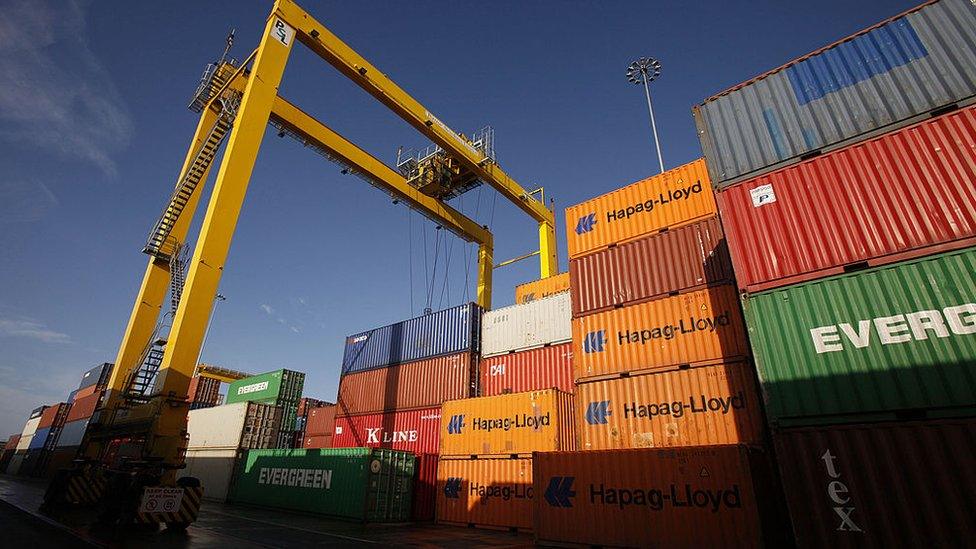
The UK is both a major trade partner for Ireland, and also a competitor
He accepts that that could be construed by some in Britain as an argument for leaving the EU - which he opposes.
"Absolutely, it could well be - but there's much more dimension to the European decision than just the business dimension or the investment decision.
"Access to the single market is going to be crucial for British businesses but also, more widely, security concerns and a whole raft of other European interactivity."
IBEC says an EU without Britain would also see the loss of a huge player, which it argues would be bad for Europe.
"Britain will be the largest EU economy in our lifetime. With current projections for population, Britain will exceed Germany," he says.
'Not a disaster'
Dublin today feels a much more European city than in the days Lord Nelson towered over its skyline with EU enlargement bringing many new nationalities to live in the city.
Continental influences like cafes and culture are everywhere, but in trade too, with around 45% of Irish exports going to continental EU, almost three times as much as go to the UK.
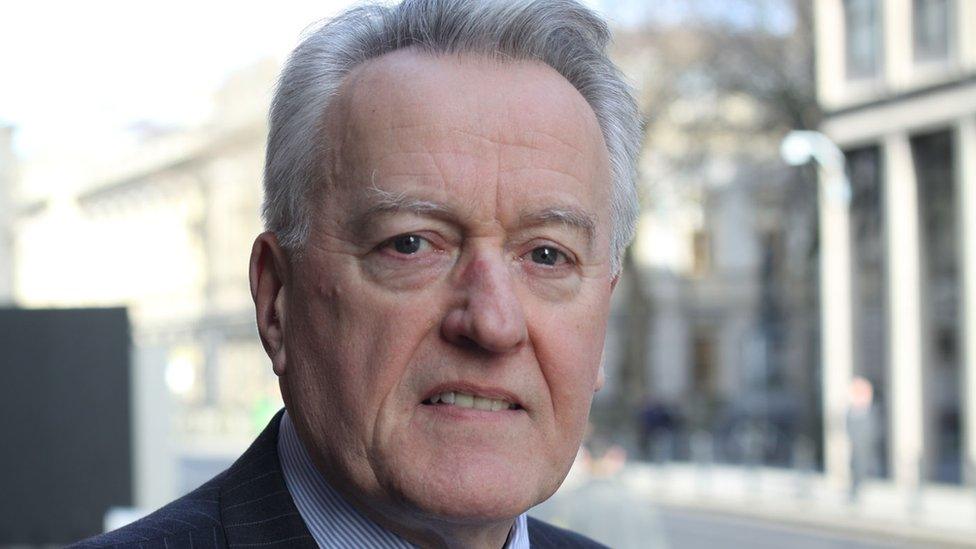
Following the recession in the UK many Irish firms found other markets, says Mark Fielding
Small and medium enterprises (SMEs) make up around 98% of Irish companies and provide over 70% of private sector jobs.
Britain is still important for these firms which are the backbone of Ireland's economy, says Mark Fielding, chief executive of ISME which represents over 10,000 firms.
He believes that while Britain leaving the EU would be significant it would not be a disaster because many Irish firms have found new markets during the recent recession.
"Because there was a recession in the UK as well, many SMEs had to find other markets.
"We found that many of our member companies were exporting into the EU - France, Germany and further afield - rather than looking at the old reliable, the UK."
Businesses 'will adapt'
Perhaps Ireland's best-known commercial economist is Robbie Kelleher of financial services group Davy.
Once a top Gaelic footballer for Dublin in the 1970s, he's not lost his knack for keeping an eye on the sporting odds which he says are against Brexit - a British exit from the EU.

The spectre of customs control along the border with Northern Ireland is unlikely, says Robbie Kelleher
Whatever the outcome, he believes business will adapt. "Currently the polls are putting it about 50-50 that they'll stay in or go out.
"The bookies who usually know a little bit more about these things than others are actually quoting 3/1-on that they are going to stay in - so it (Brexit) may not happen, and my own instinct is that it won't happen.
"The spectre of customs controls along the Northern Ireland border or restrictions on trade between here and Britain is far-fetched and highly unlikely."
In Dublin's pubs, the political talk is all about Ireland's general election but with more murmurs about a UK exit too.
Some see it like the Y2K millennium bug or a lot of fuss about nothing - but others fear the unknown. Whatever the outcome Irish business will be hoping there'll be no big hangover afterwards.
- Published30 December 2020

- Published18 February 2016
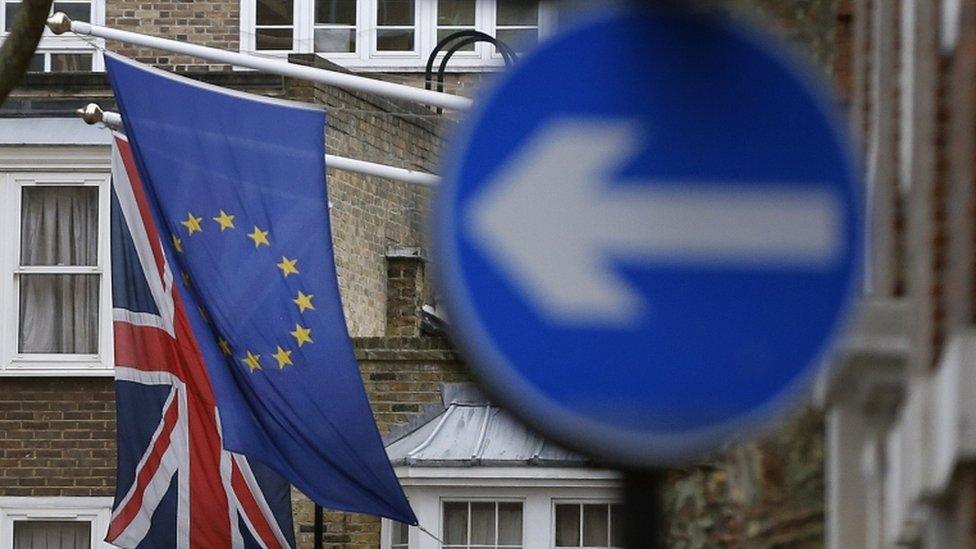
- Published18 February 2016

- Published17 February 2016
- Published26 May 2016
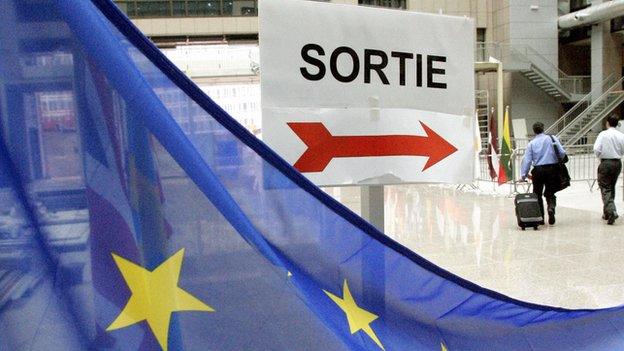
- Published17 February 2016
- Published16 February 2016
